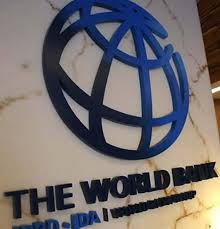For decades, Nigeria has faced recurring cholera outbreaks, frequently tied to poor sanitation, inadequate access to clean water, poverty, and malnutrition. Despite the ongoing nature of these outbreaks, Nigeria has not significantly improved its preventive or mitigative measures. Lessons from past outbreaks should have better equipped us to handle this epidemic, but unfortunately, this has not happened. The underlying factors continue to exist, with minimal or no action to address them.
We only respond when an outbreak occurs, implementing immediate measures, and once it subsides, we revert to our old habits, neglecting the long-term actions needed to prevent cholera outbreaks. How is it that many cities in Nigeria still lack clean, safe, pipe-borne water for public use?
The latest cholera outbreak in Nigeria began about three weeks ago, affecting several states across the Federation. These include Lagos, Cross River, Delta, Abia, Katsina, Imo, Nasarawa, Ogun, Oyo, Zamfara, and 20 other states. Earlier this week, the Nigeria Centre for Disease Control (NCDC) reported 1,141 cases nationwide, with Bayelsa and Lagos states recording 400 and 324, respectively.
A similar outbreak occurred in 2017, resulting in 2,309 cases and 57 deaths across 111 local government areas in 26 states. Since 1991, Nigeria has experienced five cholera outbreaks, which affected 43,996 people and resulted in 836 deaths.
Cholera is a bacterial disease that leads to severe diarrhea, vomiting, and dehydration. It is primarily transmitted through contaminated food and water, making outbreaks in Nigeria more common during the wet seasons. Immediate medical attention is crucial, as the disease can be fatal if not treated promptly.
As of 2023, Nigeria reported over 60,000 suspected cholera cases, resulting in several hundred deaths. The outbreak has impacted multiple states, with the North experiencing the highest burden. By mid-2024, Nigeria continues to struggle with cholera outbreaks.
The Nigeria Centre for Disease Control (NCDC) has activated its emergency center as the death toll from the recent cholera outbreak, which has spread across 31 states, reached 53 nationwide.
If people continue to consume unhygienic food and water, the risk of infections escalating to epidemic levels and disease strains becoming more resistant is high. A combination of vaccination, access to clean water, food security, improved hygiene, enhanced nutrition, and extensive public awareness is essential.
In Nigeria, where open defecation and inadequate access to clean, running water are prevalent, cholera remains highly endemic. Governments at all levels have largely neglected their responsibility to ensure access to clean water.
Also, each of us has a role to play in this fight, by applying basic tips in other to prevent this disease;
Wash hands frequently with soap and safe water, especially before and after preparing food, eating, and using the toilet
Use toilets or safely managed sanitation facilities. Properly dispose of feces and maintain good hygiene practice
Peel raw fruits and vegetables, cook food thoroughly, and avoid raw or undercooked seafood. Safe food handling is crucial
The government needs to bolster healthcare systems to enhance outbreak response and treatment capabilities, improve water and sanitation infrastructure (especially in rural and conflict-affected areas), increase community engagement and education to foster better hygiene practices and address broader socio-economic challenges such as hunger, poverty, and widespread illiteracy. It’s crucial that we decisively defeat cholera once and for all.
It is important to conduct regular cholera vaccinations, particularly in endemic areas and regions with limited access to clean drinking water.
Remember, early detection and timely treatment are essential. If you suspect cholera symptoms, seek medical attention promptly.





















